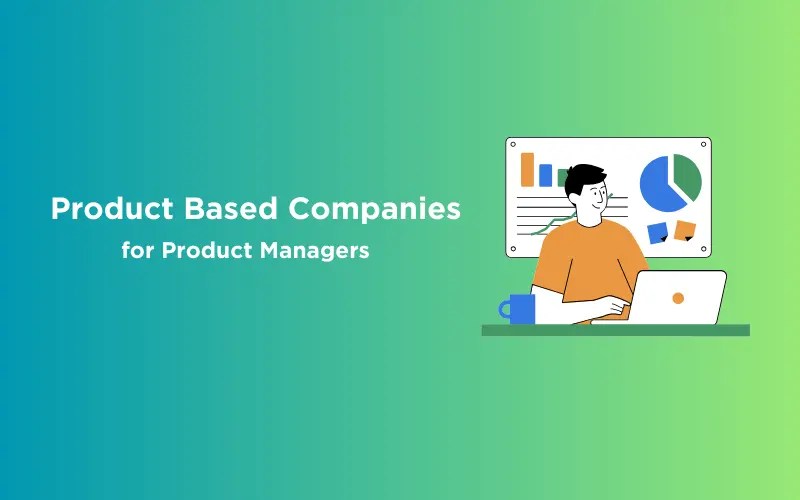CRM Product Based Companies: 7 Powerful Strategies for Success
In today’s hyper-competitive market, CRM product based companies are redefining customer engagement with smarter tools and deeper insights. Discover how top players leverage CRM to boost sales, retention, and innovation—starting now.
Understanding CRM Product Based Companies

CRM product based companies are organizations that develop, market, and sell Customer Relationship Management (CRM) software as their core product offering. Unlike service-based CRM consultants or implementation partners, these companies focus on building scalable, feature-rich platforms that help businesses manage interactions with customers, streamline sales processes, and enhance marketing automation.
These companies operate in a dynamic ecosystem where innovation, user experience, and integration capabilities determine market success. Their products often serve a wide range of industries—from small startups to Fortune 500 enterprises—offering cloud-based, on-premise, or hybrid solutions. The ultimate goal? To empower businesses with data-driven decision-making and personalized customer journeys.
What Defines a CRM Product Based Company?
A CRM product based company is defined by its primary revenue model: selling CRM software either through subscriptions (SaaS), perpetual licenses, or usage-based pricing. These companies invest heavily in research and development to continuously improve their platforms, ensuring they stay ahead of evolving customer needs and technological trends.
- They own the intellectual property of the CRM software.
- They handle product development, updates, and technical support in-house.
- They often offer APIs for third-party integrations with tools like email marketing, ERP systems, and e-commerce platforms.
Examples include Salesforce, HubSpot, Zoho CRM, and Pipedrive—each offering unique value propositions tailored to different market segments.
Key Differences Between Product and Service-Based CRM Firms
While both types aim to improve customer relationship management, CRM product based companies differ significantly from service-based firms. Service providers typically implement, customize, or train teams on existing CRM platforms but don’t develop the software itself.
“Product-based CRM companies build the engine; service-based firms help you drive it.”
This distinction affects business models, scalability, and customer relationships. Product companies scale faster due to recurring revenue models, while service firms rely on labor-intensive consulting contracts.
Top 7 CRM Product Based Companies Shaping the Industry
The global CRM market is projected to exceed $120 billion by 2028, driven largely by digital transformation and customer-centric strategies. Within this booming sector, several CRM product based companies stand out for innovation, market share, and customer satisfaction.
These leaders not only dominate in terms of revenue but also set industry standards for usability, AI integration, and omnichannel engagement. Let’s explore the top seven players shaping the future of CRM technology.
Salesforce: The Market Leader
Salesforce remains the undisputed leader among CRM product based companies, holding over 19% of the global CRM market share. Founded in 1999, it pioneered the SaaS model and continues to innovate with AI-powered tools like Einstein Analytics and robust automation features.
- Offers a comprehensive suite: Sales Cloud, Service Cloud, Marketing Cloud, and more.
- Strong ecosystem with over 3 million developers on the AppExchange.
- Invests heavily in sustainability and ethical AI practices.
Its platform-first approach allows deep customization, making it ideal for large enterprises. For more insights, visit Salesforce’s official site.
HubSpot: The Inbound Pioneer
HubSpot has redefined how mid-market and SMBs approach CRM by offering a free, user-friendly platform centered around inbound marketing principles. As one of the fastest-growing CRM product based companies, HubSpot emphasizes ease of use, automation, and seamless integration across marketing, sales, and service hubs.
- Free CRM tier with powerful contact management and deal tracking.
- Intuitive drag-and-drop workflows and email automation.
- Strong focus on content marketing and customer education.
According to Gartner, HubSpot ranks highly for customer satisfaction in the CRM space. Learn more at HubSpot’s website.
Zoho CRM: The Affordable Powerhouse
Zoho CRM stands out for delivering enterprise-grade functionality at competitive prices. As a key player among CRM product based companies, Zoho targets small to medium businesses looking for scalability without high costs.
- AI-powered assistant, Zia, offers predictive insights and automation.
- Highly customizable modules for sales forecasting and pipeline management.
- Part of the larger Zoho One suite, enabling full business operations integration.
Zoho’s commitment to privacy and data ownership resonates with organizations concerned about vendor lock-in.
Microsoft Dynamics 365: The Enterprise Integrator
Microsoft Dynamics 365 combines CRM and ERP functionalities into a unified platform, making it a top choice for large enterprises already embedded in the Microsoft ecosystem. Among CRM product based companies, Dynamics excels in seamless integration with Office 365, Teams, and Azure AI.
- Deep integration with Outlook, Excel, and Power BI.
- Strong AI capabilities for sales forecasting and customer service automation.
- Flexible deployment options: cloud, on-premise, or hybrid.
It’s particularly effective for organizations seeking a single platform for finance, operations, and customer engagement.
Pipedrive: The Sales-Focused Challenger
Pipedrive differentiates itself by focusing exclusively on sales pipeline management. Among CRM product based companies, it’s known for its visual, intuitive interface that helps sales teams track deals with minimal friction.
- Drag-and-drop pipeline views make deal progression transparent.
- Activity-based selling features encourage consistent follow-ups.
- Strong mobile app performance for field sales teams.
Pipedrive is ideal for startups and small businesses prioritizing sales efficiency over complex marketing automation.
Oracle CX: The Data-Driven Giant
Oracle’s Customer Experience (CX) suite is a comprehensive offering from one of the world’s largest enterprise software vendors. Oracle positions itself among CRM product based companies as a leader in data intelligence and real-time personalization.
- Leverages Oracle’s massive database infrastructure for high-performance analytics.
- Offers AI-driven recommendations across marketing, sales, and service.
- Strong B2B and B2C capabilities with industry-specific templates.
While complex to implement, Oracle CX delivers unmatched scalability for global enterprises.
SAP Customer Experience: The Global Enterprise Solution
SAP’s CRM solutions are built for multinational corporations with complex supply chains and customer ecosystems. As a major player among CRM product based companies, SAP integrates CRM with supply chain, logistics, and financial systems for end-to-end visibility.
- SAP C/4HANA unifies marketing, sales, service, and commerce.
- Real-time insights powered by SAP HANA in-memory computing.
- Compliance-ready for GDPR, CCPA, and other global regulations.
SAP’s strength lies in its ability to connect customer data with backend operations, enabling truly holistic business management.
Core Features That Define Leading CRM Product Based Companies
What separates successful CRM product based companies from the rest? It’s not just about having a functional platform—it’s about delivering a suite of features that solve real business problems. The most impactful CRMs combine usability, automation, and intelligence to create seamless customer experiences.
These features are not just add-ons; they form the backbone of modern CRM systems. Let’s break down the essential components that define industry-leading platforms.
Contact and Lead Management
At the heart of every CRM system is the ability to store, organize, and track customer information. CRM product based companies prioritize robust contact management tools that allow users to segment audiences, track interactions, and nurture leads effectively.
- Centralized databases for contacts, accounts, and opportunities.
- Automated lead scoring based on behavior and engagement.
- Duplicate detection and data enrichment via third-party integrations.
This foundational layer ensures that sales and marketing teams have accurate, up-to-date information at their fingertips.
Sales Automation and Pipeline Tracking
Efficiency in sales processes is a key differentiator. Top CRM product based companies offer advanced automation features that reduce manual tasks and improve conversion rates.
- Automated task reminders, follow-up emails, and appointment scheduling.
- Visual sales pipelines with drag-and-drop functionality.
- Forecasting tools powered by historical data and AI predictions.
These tools help sales managers monitor team performance and identify bottlenecks in real time.
Marketing Automation and Campaign Management
Modern CRM platforms go beyond sales—they enable end-to-end marketing campaigns. CRM product based companies integrate email marketing, social media scheduling, and lead nurturing workflows directly into their systems.
- Drag-and-drop campaign builders with A/B testing.
- Landing page and form creation tools.
- Behavioral triggers for personalized messaging.
This integration eliminates silos between marketing and sales, ensuring consistent messaging across channels.
The Role of AI and Machine Learning in CRM Product Based Companies
Artificial Intelligence (AI) is no longer a luxury—it’s a necessity for CRM product based companies aiming to stay competitive. From predictive analytics to chatbots, AI enhances every aspect of customer relationship management.
Leading CRM vendors are embedding machine learning models directly into their platforms to deliver smarter insights, automate repetitive tasks, and personalize customer interactions at scale.
Predictive Analytics for Sales Forecasting
One of the most powerful applications of AI in CRM product based companies is predictive analytics. By analyzing historical sales data, customer behavior, and market trends, AI models can forecast future outcomes with remarkable accuracy.
- Identifies high-value leads likely to convert.
- Predicts churn risk and suggests retention strategies.
- Recommends optimal pricing and discounting strategies.
For example, Salesforce Einstein uses AI to predict which deals are at risk of stalling, allowing sales reps to intervene proactively.
AI-Powered Chatbots and Virtual Assistants
Customer service is being transformed by AI-driven chatbots. CRM product based companies are integrating intelligent virtual assistants to handle routine inquiries, freeing up human agents for complex issues.
- 24/7 support with natural language processing (NLP).
- Seamless handoff to live agents when needed.
- Learning from past interactions to improve responses over time.
HubSpot’s chatbot builder allows businesses to create custom bots without coding, enhancing customer engagement across websites and social media.
Intelligent Data Entry and Automation
Data entry remains one of the most time-consuming tasks in CRM usage. To address this, CRM product based companies are leveraging AI to automate data capture and enrichment.
- Smart capture of emails, calendar events, and phone calls.
- Automatic contact and company profile enrichment using external data sources.
- Voice-to-text transcription for meeting notes and call summaries.
Zoho Zia, for instance, can auto-log calls, suggest follow-ups, and even detect sentiment during customer conversations.
How CRM Product Based Companies Drive Customer Retention
Acquiring new customers is expensive—up to five times more costly than retaining existing ones. This is why CRM product based companies place a strong emphasis on tools and strategies that enhance customer loyalty and lifetime value.
By leveraging data, automation, and personalized communication, these platforms help businesses build stronger, long-term relationships with their clients.
Customer Segmentation and Personalization
One-size-fits-all communication is outdated. CRM product based companies enable granular segmentation based on demographics, behavior, purchase history, and engagement levels.
- Dynamic lists that update automatically based on user actions.
- Personalized email content and product recommendations.
- Behavior-triggered campaigns (e.g., abandoned cart reminders).
This level of personalization increases relevance, boosts open rates, and drives conversions.
Proactive Support and Service Management
Top CRM platforms include service modules that empower support teams to resolve issues faster and more efficiently. CRM product based companies integrate ticketing systems, knowledge bases, and customer feedback loops into their ecosystems.
- Automated case routing based on issue type and agent expertise.
- Self-service portals for common queries.
- Customer satisfaction (CSAT) and Net Promoter Score (NPS) tracking.
These tools not only improve resolution times but also provide valuable insights into customer pain points.
Loyalty Programs and Feedback Loops
Retention isn’t just about solving problems—it’s about rewarding loyalty. CRM product based companies are incorporating loyalty program management and feedback collection tools directly into their platforms.
- Automated reward point tracking and redemption.
- In-app surveys and post-interaction feedback requests.
- Integration with CRM data to tailor rewards based on customer value.
By closing the feedback loop, businesses can continuously refine their offerings and strengthen emotional connections with customers.
Challenges Faced by CRM Product Based Companies
Despite their growth and innovation, CRM product based companies face significant challenges in a rapidly evolving digital landscape. From data privacy concerns to intense competition, these hurdles require strategic foresight and operational agility.
Understanding these challenges is crucial for both vendors and customers to make informed decisions and ensure long-term success.
Data Privacy and Security Concerns
As CRM systems store vast amounts of sensitive customer data, security breaches can have devastating consequences. CRM product based companies must comply with regulations like GDPR, CCPA, and HIPAA while maintaining customer trust.
- Implementing end-to-end encryption and multi-factor authentication.
- Regular security audits and penetration testing.
- Transparent data handling policies and consent management.
Failure to protect data can result in legal penalties, reputational damage, and loss of clients.
Integration Complexity with Existing Systems
Many businesses already use ERP, HR, e-commerce, and communication tools. CRM product based companies must ensure their platforms integrate smoothly with these systems to avoid data silos.
- Offering pre-built connectors for popular platforms like Shopify, Slack, and QuickBooks.
- Providing robust APIs and developer documentation.
- Supporting webhooks and real-time data synchronization.
However, integration complexity can still lead to implementation delays and increased costs, especially for legacy systems.
High Customer Expectations and Support Demands
With so many CRM options available, customers expect flawless performance, intuitive interfaces, and responsive support. CRM product based companies are under constant pressure to deliver exceptional user experiences.
- 24/7 customer support with multiple channels (chat, phone, email).
- Comprehensive knowledge bases and community forums.
- Regular product updates and feature releases.
Meeting these expectations requires significant investment in customer success teams and continuous product improvement.
Future Trends in CRM Product Based Companies
The CRM industry is far from static. Emerging technologies and shifting customer expectations are shaping the next generation of CRM platforms. CRM product based companies that anticipate these trends will lead the market in the coming decade.
From hyper-personalization to voice-enabled interfaces, the future of CRM is intelligent, adaptive, and deeply integrated.
Hyper-Personalization Through AI and Big Data
The next frontier in CRM is hyper-personalization—delivering unique experiences to individual customers in real time. CRM product based companies are combining AI, machine learning, and big data to make this a reality.
- Real-time recommendation engines based on browsing and purchase behavior.
- Dynamic content generation for emails and landing pages.
- Context-aware messaging that adapts to customer sentiment and timing.
This level of personalization increases engagement and drives higher conversion rates.
Voice-Activated CRM and Conversational Interfaces
As voice assistants like Alexa and Google Assistant become mainstream, CRM product based companies are exploring voice-enabled CRM interactions.
- Voice commands for logging calls, creating tasks, or checking deal status.
- Integration with smart speakers for hands-free CRM access.
- Natural language queries for generating reports or pulling customer data.
While still in early stages, voice CRM has the potential to revolutionize how sales and support teams interact with their systems.
Blockchain for Secure and Transparent Customer Data
Blockchain technology offers a decentralized, tamper-proof way to manage customer identities and transaction histories. Some forward-thinking CRM product based companies are experimenting with blockchain to enhance data integrity and privacy.
- Immutable audit trails for customer interactions.
- Customer-controlled data sharing via digital wallets.
- Smart contracts for automated loyalty rewards or service agreements.
Though adoption is slow, blockchain could redefine trust in customer data management.
What are CRM product based companies?
CRM product based companies are organizations that develop and sell Customer Relationship Management software as their primary product. Examples include Salesforce, HubSpot, and Zoho CRM. They focus on building scalable platforms that help businesses manage sales, marketing, and customer service operations.
How do CRM product based companies use AI?
CRM product based companies use AI for predictive analytics, chatbots, automated data entry, and personalized marketing. AI enhances decision-making, improves efficiency, and enables real-time customer insights across sales and service functions.
Which CRM product based company is best for small businesses?
HubSpot and Zoho CRM are often considered the best CRM product based companies for small businesses due to their affordable pricing, ease of use, and robust feature sets tailored to SMB needs.
Are CRM product based companies secure?
Most reputable CRM product based companies implement strong security measures like encryption, multi-factor authentication, and compliance with data protection regulations (e.g., GDPR). However, security depends on both the vendor and the customer’s internal practices.
What is the future of CRM product based companies?
The future includes hyper-personalization, voice-enabled interfaces, blockchain for data security, and deeper AI integration. CRM product based companies will focus on delivering intelligent, seamless, and ethical customer experiences.
CRM product based companies are at the forefront of digital transformation, empowering businesses to build stronger customer relationships through innovation and intelligence. From market leaders like Salesforce to agile players like Pipedrive, these companies are shaping how organizations engage, sell, and retain customers. As AI, automation, and data privacy continue to evolve, the most successful CRM vendors will be those that balance technological advancement with user-centric design and ethical responsibility. Whether you’re a startup or a global enterprise, choosing the right CRM partner can be a game-changer for long-term growth and customer satisfaction.
Further Reading:








